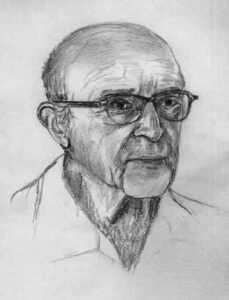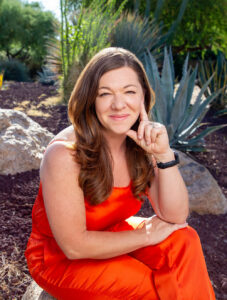Although it may get lost in translation, religions and ideologies around the world, as different as they may be, often have a common thread – treat your common man with dignity. This is something that Carl Rogers believed in as well. To be more specific, he believed in Unconditional Positive Regard – that every person craved self-acceptance and understanding and that in order to change, that very self-acceptance was most needed.
 Carl Rogers was a beloved psychologist and father of the humanistic approach in psychology. His humanistic approach to psychology gained popularity in the 1950s and was based on the simple belief that all people are inherently good. In today’s world of division, political upheaval, keyboard warriors, and constant vitriol at every turn, it’s easy to get sucked into the negativity. With breaking news at our fingertips and everyone’s unfiltered opinion on that breaking news, the trap of believing the worst in humanity is not a hard one into which to fall.
Carl Rogers was a beloved psychologist and father of the humanistic approach in psychology. His humanistic approach to psychology gained popularity in the 1950s and was based on the simple belief that all people are inherently good. In today’s world of division, political upheaval, keyboard warriors, and constant vitriol at every turn, it’s easy to get sucked into the negativity. With breaking news at our fingertips and everyone’s unfiltered opinion on that breaking news, the trap of believing the worst in humanity is not a hard one into which to fall.
Rogers and many others who follow the humanistic way believe in viewing ourselves as a “whole person”, greater than the sum of our parts. They believe in self-discovery and self-betterment, as opposed to focusing on the faults or behaviors of others. It’s when we truly understand ourselves that we’re able to truly change for the better, and in turn, help change the world. Can you imagine a world where everyone was self-aware? Aware of their faults. Aware of their weaknesses. Aware of their strengths. Aware of their areas for potential.
“The curious paradox is that when I accept myself just as I am, then I can change.” Carl Rogers
That’s the idea behind Unconditional Positive Regard in psychology. Although this is a topic that therapists learn about in school, kind of like how physicians learn about bedside manners. It’s something that each of us can learn just to be better humans. The American Psychological Association defines Unconditional Positive Regard as this –
an attitude of caring, acceptance, and prizing that others express toward an individual irrespective of his or her behavior and without regard to the others’ personal standards. Unconditional positive regard is considered conducive to the individual’s self-awareness, self-worth, and personality growth; it is, according to Carl Rogers, a universal human need essential to healthy development. The concept is the centerpiece of Rogers’s client-centered therapy and is also emphasized in many other therapeutic approaches.
We define it simply as caring about our fellow man, without judgment, without reserve, and without conditions. If you’re a parent or a spouse, this may come easy for you in those relationships. What about your neighbor who leaves his trash can out for four days past trash day? What about the guy at work who keeps parking in your spot? What about that guy online who commented on a post hatefully? It’s so easy to just write people off as not worth it. The thing is people are worth it. Everyone person is worth it. That’s what Unconditional Positive Regard teaches.
Client-Centered Therapy
As therapists, we hear a lot of stories from our clients. We hear a lot of confessions. We help clients process traumas and work through guilt and shame. Carl Rogers taught the importance of acceptance for each and every client. This need for acceptance doesn’t just start from the time a client walks into our office. The need for acceptance is a natural emotional need for humans. Also known as belongingness, it’s a part of Maslow’s hierarchy of needs and states that our actions are motivated by certain physiological and psychological needs. The need for acceptance starts in childhood when we want our parents or guardians to watch us do a flip or twirl a string. We crave acceptance and belonging.
That’s where client-centered therapy comes in. No matter what our clients share with us, we accept them. Sure, there are limits. If someone shares that they’ve committed a crime, we have obligations. But we will also listen without judgment. Unconditional Positive Regard supports our client’s self-worth. It reinforces their journey to self-discovery. It improves their confidence. Through this self-discovery and understanding, we’re able to help our clients accomplish goals, build better relationships, and find clarity in life.

Here at MUV Counseling, we offer, among many other modalities, Acceptance & Commitment Therapy. With ACT, our clients have found help with depression, OCD, anxiety disorders, psychosis, chronic pain, and life transitions like divorce, a new baby, or a new job. We would love to help you find clarity and acceptance in a judgment-free zone. Reach out today if you need to talk.




